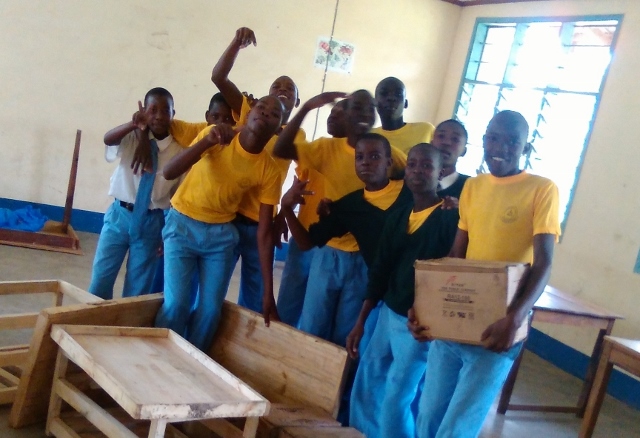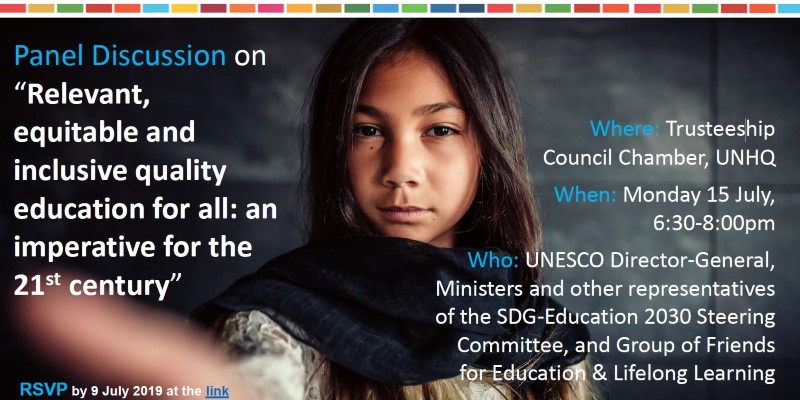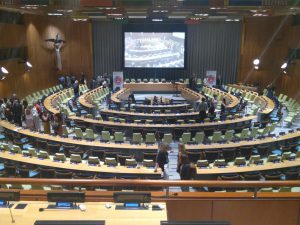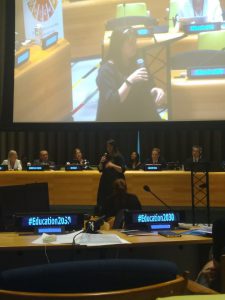In the past, we’ve talked about our efforts in the Sazira Secondary School in Tanzania near Lake Victoria. We’re committed to completing an expansion upgrade to their computer lab by September of this year. Thanks to a generous grant of $13,000 from the Collegiate Churches of New York and $3,800 of in-kind services, we need only an additional $6,300 to complete the project. Would you help by making a contribution?
We’ve been working for years with co-ed government secondary schools to solve the lack of electricity, internet and educational resources with our award-winning programs. Our Educating Through Technology programs include SPARC (Solar-Powered Access to Raspberry Computing) computer labs and the Pi-oneer, an innovative teaching tool that combines a mobile projector with a Raspberry Pi computer. Both create a technology infrastructure within the schools and enables them to offer the national curriculum for Information and Computer Studies to their students. In addition, we provide schools with an offline digital library of educational resources along with technology training for teachers and students.

We have also sought to give students in these regions a foundation on which to build their lives. After receiving a school background with improved resources and technology literacy, these students often go on to pursue advanced education and employment opportunities. A full 60% of students surveyed at our beneficiary schools reported continuing their education while 57% were able to secure solid employment. With the generosity of our corporate sponsors, compassionate donors and individuals like you, we will continue to increase those numbers.
Sazira Secondary School, Kabasa Secondary School, and Mekomariro Secondary School are three schools in the Bunda District equipped with our solar-powered computer labs. Our plans for the Sazira Secondary School will take the school’s current SPARC lab of five computers and transform it into a SPARC+ lab equipped with twenty. This installation will impact 822 girls and boys aged 14-18 and 37 teachers. As one class graduates and another begins, more students will benefit from the services we provide.

As an international non-profit, we remain committed to our mission of enhancing education and stimulating the imaginations of students in developing countries. We also respect and incorporate the values of the local culture, emphasizing cooperation over competition, community over the individual, modesty over pride and spiritually over materiality. Combined with our dedication to utilizing solar power and open source technology in every lab we install, we feel our cause is a worthwhile charity for our patrons.
Join us in our efforts to continue expanding the resources available to the Sazira Secondary School by donating today!



